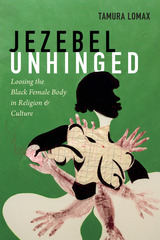Shadow Bodies: Black Women, Ideology, Representation, and Politics
Rutgers University Press, 2018
Paper: 978-0-8135-9339-5 | eISBN: 978-0-8135-9341-8 | Cloth: 978-0-8135-9340-1
Library of Congress Classification E185.86.J6733 2017
Dewey Decimal Classification 305.48896073
Paper: 978-0-8135-9339-5 | eISBN: 978-0-8135-9341-8 | Cloth: 978-0-8135-9340-1
Library of Congress Classification E185.86.J6733 2017
Dewey Decimal Classification 305.48896073
ABOUT THIS BOOK | AUTHOR BIOGRAPHY | REVIEWS | TOC
ABOUT THIS BOOK
What does it mean for Black women to organize in a political context that has generally ignored them or been unresponsive although Black women have shown themselves an important voting bloc? How for example, does #sayhername translate into a political agenda that manifests itself in specific policies? Shadow Bodies focuses on the positionality of the Black woman’s body, which serves as a springboard for helping us think through political and cultural representations. It does so by asking: How do discursive practices, both speech and silences, support and maintain hegemonic understandings of Black womanhood thereby rendering some Black women as shadow bodies, unseen and unremarked upon?
Grounded in Black feminist thought, Julia S. Jordan-Zachery looks at the functioning of scripts ascribed to Black women’s bodies in the framing of HIV/AIDS, domestic abuse, and mental illness and how such functioning renders some bodies invisible in Black politics in general and Black women’s politics specifically.
Grounded in Black feminist thought, Julia S. Jordan-Zachery looks at the functioning of scripts ascribed to Black women’s bodies in the framing of HIV/AIDS, domestic abuse, and mental illness and how such functioning renders some bodies invisible in Black politics in general and Black women’s politics specifically.
See other books on: African American women | Black Women | Civil Rights | Jordan-Zachery, Julia S. | Social Theory
See other titles from Rutgers University Press






























